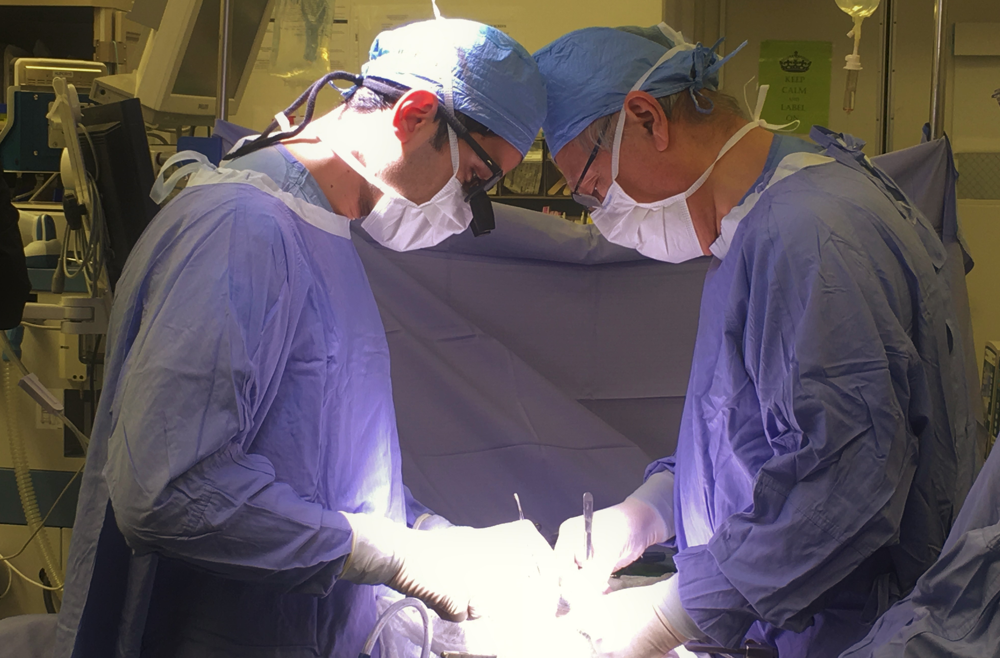
PHILADELPHIA - Penn Medicine has been awarded a prestigious seven-year, $14 million grant from the National Institutes of Health (NIH) to promote organ transplantation for patients with end-stage renal disease who are currently on the waitlist for a kidney transplant. The team will launch a clinical trial harnessing synthetic chimeric antigen receptor (CAR) T cells - a form of which was developed at Penn Medicine and became the first personalized cellular therapy for cancer - for use in patients for whom a compatible kidney cannot be found due to pre-existing antibodies against potential donors.
There are currently 97,000 patients on the waiting list for a kidney transplant in the United States. A major barrier to successful transplantation in some of these patients is the existence of pre-formed antibodies against potential organ donors, which arise when patients are exposed to other people's cells or tissues such as through pregnancy, blood transfusion or previous organ transplants. Patients who form high levels of donor-specific antibodies, termed "highly sensitized," tend to wait longer on the transplant list and may never receive an organ.
"Engineering novel cellular immunotherapies to help improve access to kidney transplants is an exciting area of research for a unique patient population in great need of lifesaving organs," said Ali Naji, MD, PhD, the J. William White Professor of Surgical Research in the Perelman School of Medicine at the University of Pennsylvania and principal investigator of the study. "We're committed to discovering an approach to help these currently transplant-ineligible end-stage renal disease patients find a path forward to an organ match."
The NIH-funded clinical trial led by Penn will leverage CAR T cells, a form of immunotherapy that has proven remarkably effective as an anti-cancer treatment. Two experimental CAR T cell therapies developed at Penn will be used to deplete immune B cells and plasma cells that make donor-specific antibodies with the hope of achieving a compatible kidney match.
"CAR T cells represent a powerful and specific therapy targeting immune cells that produce antibodies that preclude successful transplantation," said Carl H. June, MD, the Richard W. Vague Professor in Immunotherapy in the department of Pathology and Laboratory Medicine and director of the Center for Cellular Immunotherapies and the Parker Institute for Cancer Immunotherapy in Penn's Abramson Cancer Center. "By combining two CAR T therapies targeting antigens that are found on B cell and plasma cells, we hope to achieve successful kidney transplantion in patients with pre-existing antibodies."
The trial, which intends to begin enrolling patients by the end of 2022, will be offered at three sites, led by Penn and including the Massachusetts General Hospital/Harvard University and New York University Langone Health.
"Based on previous success with proving that engineered T cell immunotherapies employing synthetic CARs can induce durable remission of B cell lineage and plasma cell malignancies, we are excited for the opportunity to explore this further," said Alfred Garfall, MD, an assistant professor of Hematology at Penn. "With the favorable safety record we observed with this combination cellular approach, there is great anticipation for what Penn's two experimental CAR T cell therapies could do for patients with cancer, and other conditions, who might benefit from innovative immunotherapies."
"There is a very high degree of enthusiasm for this research and the impact it can have for patients in need with a treatment approach that could change clinical practice and expand access to transplantation for those with immunologic barriers that currently make them unlikely to receive a transplant," added Vijay Garud Bhoj, MD, PhD, an assistant professor of Pathology and Laboratory Medicine at Penn. "The proposed research we are looking forward to conducting is based on strong preliminary data that suggest both safety and efficacy, which is highly innovative in the field of transplantation."
The study will be supported by the National Institute of Allergy and Infectious Diseases Special Emphasis Panel's Clinical Trials in Organ Transplantation in Children and Adults (CTOT-CA) (1U01AI163087-01).






